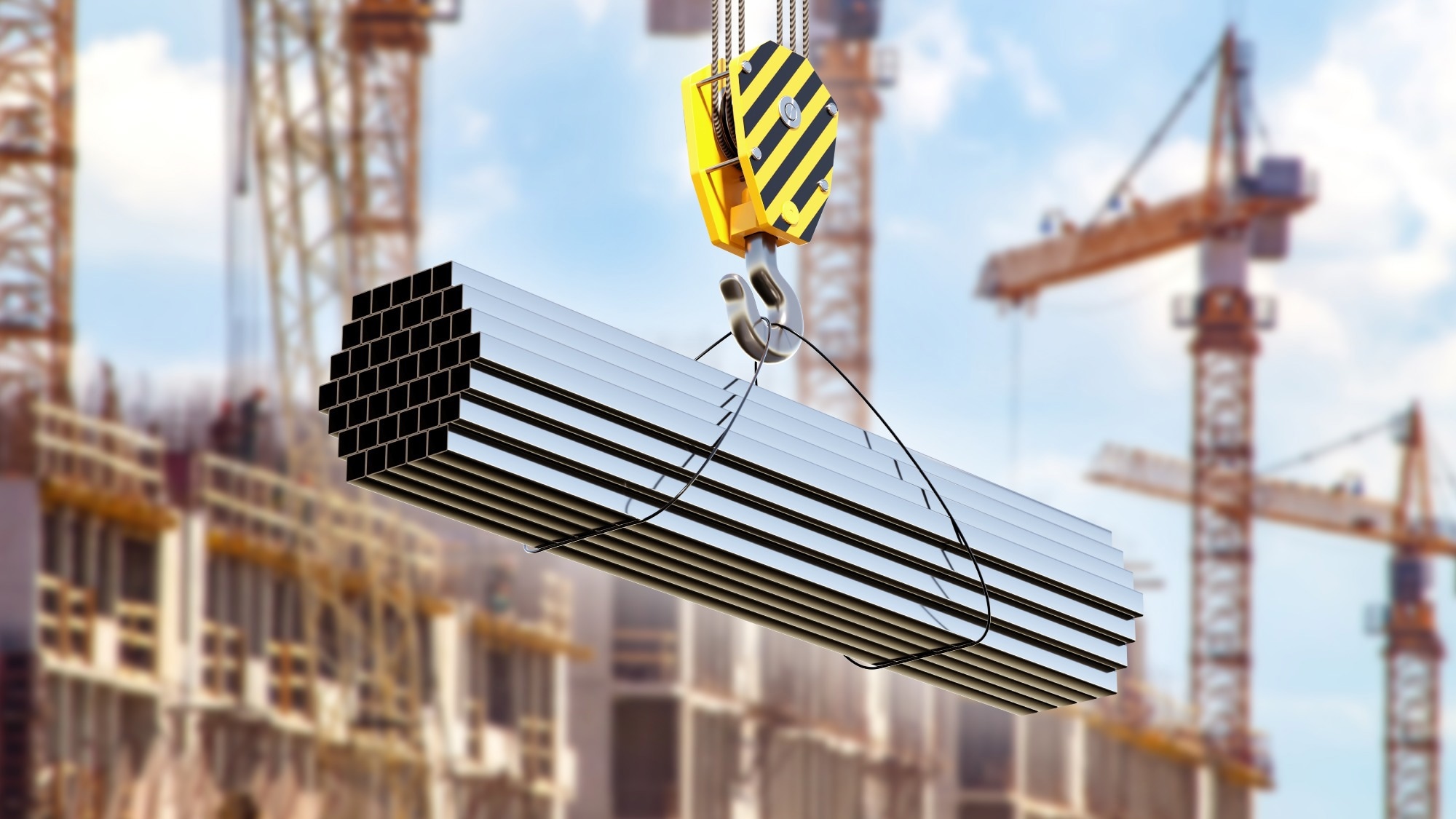Steel has served as a cornerstone material throughout the construction industry for many years. Its exceptional strength and durability see steel continue to play a vital role in building bridges, shaping skylines, and developing infrastructure around the world.
Steel remains the preferred choice of architects, engineers, and builders alike due to its adaptability and exceptional performance.

Image Credit: FOTOGRIN/Shutterstock.com
Key Benefits of Steel in Construction
There are a multitude of advantages to using steel in the construction industry:
High Strength to Weight Ratio
Steel offers excellent strength without excessive weight, making it ideally suited to the construction of long-span bridges, tall buildings, and large industrial structures.
Longevity and Durability
When properly treated, steel is resistant to corrosion, pests, mold, and rot. Structures last longer and with fewer maintenance requirements due to steel’s capacity to withstand fire, seismic events, and extreme weather.
Speed of Construction
It is possible to fabricate steel components off-site and rapidly assemble them on-site. This construction approach accelerates the construction process, minimizes project delays, and reduces labor costs.
Popular Steel Grades Used in Construction
Several steel grades see regular use in construction projects, including:
- S235JR
- S275JR
- S355JR/JOWP
- S420G1/G2
- S460NL/ML
Masteel stocks and supplies the above steel grades in thicknesses from 1 mm to 200 mm. In-house profiling services are also available, enabling structural plates to be cut to exact specifications using flame, laser, plasma, and waterjet cutting methods.
Masteel achieved the National Highway Sector Schemes 3B accreditation in 2025, meaning that it is now certified to supply steel products for Highway Agency Contracts throughout the UK.
Certified to EN1090 EXC4 for UKCA-marked structural steel profiles, Masteel’s company profiles are approved for use in structural applications within the UK.
These accreditations highlight Masteel’s continuing commitment to safety, quality, and reliability in its supply of steel products.
Acknowledgments
Produced from materials originally authored by Masteel UK Ltd.

This information has been sourced, reviewed, and adapted from materials provided by Masteel UK Ltd.
For more information on this source, please visit Masteel UK Ltd.